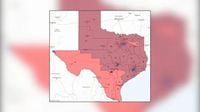In a dramatic escalation of the nation’s redistricting wars, Texas and California—America’s two largest and most politically polarized states—have launched dueling efforts to redraw their congressional maps, each aiming to tip the balance of power in the U.S. House of Representatives ahead of the 2026 midterm elections.
On Wednesday, August 20, 2025, the Texas House approved a contentious new congressional map designed to give Republicans up to five additional seats in Congress. The 88-52 vote, divided strictly along party lines, marked the culmination of a weeks-long standoff that saw Texas Democrats flee the state in a bid to delay the measure, only to be placed under 24-hour police surveillance and compelled to attend the decisive session. According to Reuters, the maps must still be approved by the GOP-controlled Texas Senate and signed by Republican Governor Greg Abbott, though both steps are widely considered formalities.
Republicans in Texas have been explicit about their intentions. “The underlying goal of this plan is straightforward: improve Republican political performance,” said Todd Hunter, the Republican sponsor of the map, as reported by The Guardian. The new boundaries would give the GOP five more winnable seats—an outcome openly championed by former President Donald Trump, who posted the proposed map on his Truth Social platform earlier in the week, calling it “one of the most popular initiatives I have ever supported.”
The move has sparked fierce backlash from Texas Democrats, who denounced the map as a violation of the Voting Rights Act and a racial gerrymander designed to dilute minority voting power. Democratic State Representative John H. Bucy didn’t mince words, labeling the bill “Donald Trump’s map” and arguing, “It clearly and deliberately manufactures five more Republican seats in Congress because Trump himself knows that the voters are rejecting his agenda.”
But Texas isn’t acting alone. Republicans, with Trump’s backing, have signaled their ambitions to redraw maps in other states as well, targeting Ohio, Missouri, New Hampshire, Indiana, South Carolina, and Florida for similar partisan overhauls. “Big WIN for the Great State of Texas!!! Everything Passed, on our way to FIVE more Congressional seats and saving your Rights, your Freedoms, and your Country, itself,” Trump declared on social media, adding that other states “are looking to do the same thing.”
The Texas gambit has triggered a swift and forceful counterattack from Democrats in California. Led by Governor Gavin Newsom, California’s Democratic supermajority is racing to pass a trio of bills that would allow voters to overturn the state’s independent redistricting commission and usher in a new, more partisan congressional map. The proposal, debated in a special legislative session on Thursday, August 21, 2025, would flip five Republican-leaning districts—those represented by Doug LaMalfa, David Valadao, Darrell Issa, Ken Calvert, and Kevin Kiley—into Democratic-leaning seats, effectively neutralizing the GOP gains in Texas.
“This is about taking back our country,” Newsom told reporters on Wednesday, according to Fox News. “This is about the Democratic Party now punching back forcefully and very intentionally.” Newsom’s plan, dubbed the “election rigging response act,” would go before voters in a special election this November. The measure is conditional: it would take effect only in response to a gerrymander by a Republican state, a threshold met when Texas’s map reaches Governor Abbott’s desk.
The California GOP, however, has fiercely opposed the plan, deriding it as a “Gavinmander” and warning of the dangers of escalating partisan warfare. “The problem when you fight fire with fire is you burn it all down,” said James Gallagher, the state assembly Republican leader, at a news conference. Republican lawmakers also challenged the process in court, arguing they lacked the constitutionally required 30 days to review the legislation, but the California Supreme Court rejected their emergency request on Wednesday night.
Critics have raised concerns about the cost and precedent of California’s move. Republicans estimate that a special election could cost more than $230 million—money they argue would be better spent elsewhere. Even some Democrats and independents who have long fought gerrymandering are uneasy. Sara Sadhwani, a political science professor and former Democratic member of California’s independent redistricting commission, testified that the tit-for-tat approach presents voters with a “moral conflict.” Yet she concluded, “I do believe this is a necessary step in a much bigger battle to shore up free and fair elections in our nation.”
Polling on the California measure has been mixed. A recent survey by Newsom’s pollster, David Binder, found 57% of voters support the redistricting initiative, while 35% oppose it. Notably, support drops when the measure is framed as eliminating the independent commission, but rebounds when described as a temporary response to partisan actions in other states like Texas.
National figures have weighed in on both sides of the redistricting arms race. Former President Barack Obama, speaking at an event in Martha’s Vineyard, supported Newsom’s approach as “responsible,” despite his general opposition to partisan mid-decade redistricting. “I’ve had to wrestle with my preference, which would be that we don’t have political gerrymandering,” Obama said, according to Fox News. “But what I also know is that if we don’t respond effectively, then this White House and Republican-controlled state governments all across the country, they will not stop.”
Meanwhile, New York’s Democratic Governor Kathy Hochul echoed the alarm, calling the Texas redistricting plan a “legal insurrection” and signaling that New York might pursue a similar countermeasure. “Yes, we’ll fight fire with fire. Yes, we will push back. It’s not about whether we play hardball anymore, it’s about how we play hardball,” Newsom said, underscoring the new Democratic resolve.
The redistricting battle is more than just a political chess match; it’s a high-stakes contest over the rules of American democracy. Traditionally, states redraw congressional maps once a decade based on census data. But both Texas and California are now pursuing rare mid-decade redraws, a move that could set a precedent for future power struggles. As Democrats in Sacramento and Republicans in Austin push their respective plans, the outcome could shape the partisan makeup of Congress for years to come—and, some warn, accelerate the erosion of bipartisan norms.
With both states poised to finalize their maps in the coming days, all eyes are on the next moves in this coast-to-coast contest. The stakes are high, the rhetoric is fierce, and the nation’s political map may soon look very different as a result.



